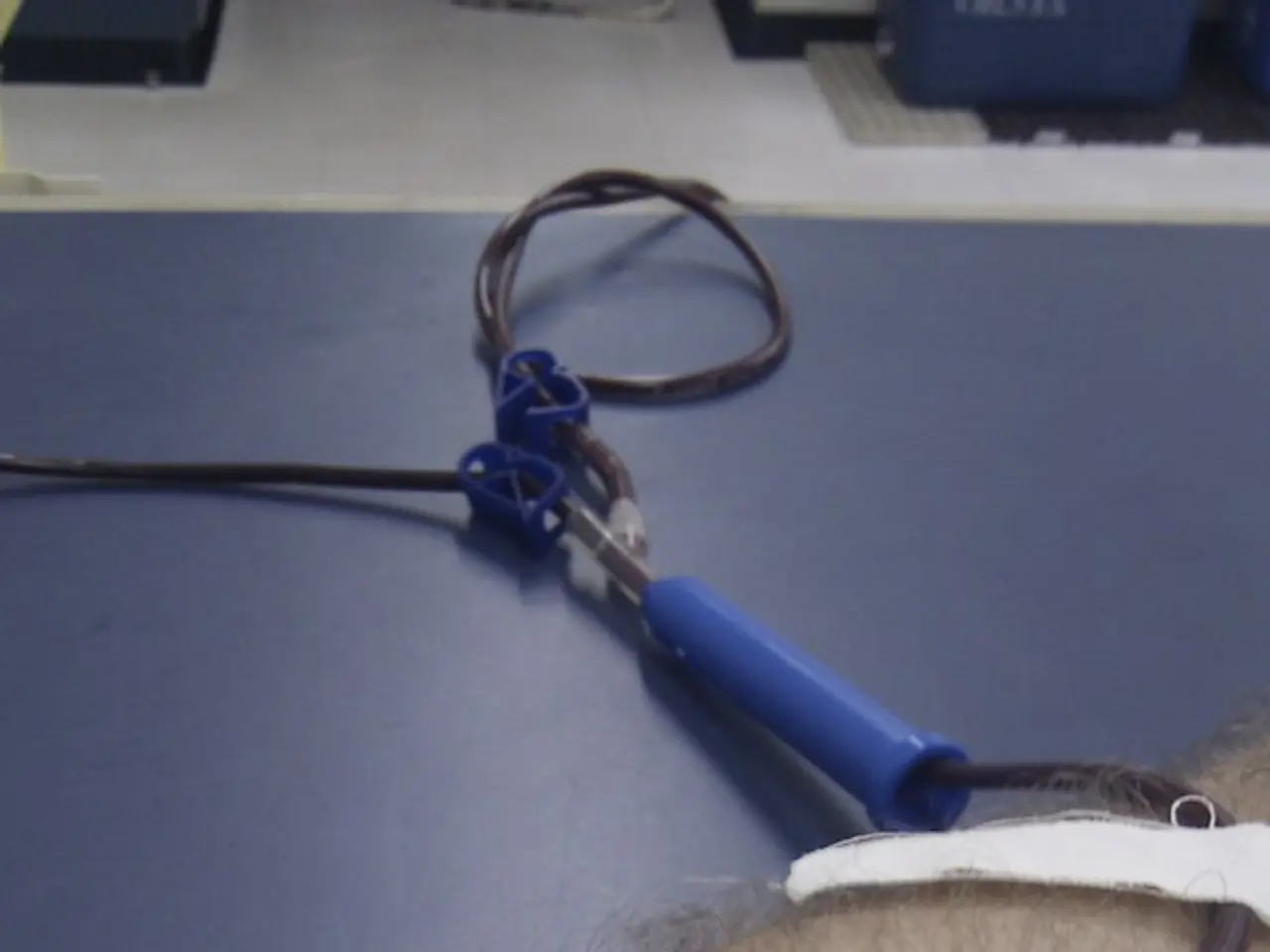Tubular Kidney Injury (ATN): Causes, Diagnostic Tests, and Further Details
Acute Tubular Necrosis (ATN), a common cause of acute kidney injury, is primarily caused by ischemic injury and nephrotoxic injury [1][3].
Ischemic Causes
Severe hypovolemia from conditions such as diarrhea, vomiting, bleeding, or dehydration, can lead to ATN. Additionally, conditions that reduce kidney perfusion, like heart failure, cirrhosis, or burns, can also contribute to the development of ATN. Sepsis or anaphylaxis causing systemic vasodilation and hypotension, coagulopathies like disseminated intravascular coagulation (DIC), and other conditions that reduce renal blood flow can also result in ATN [1][3].
Nephrotoxic Causes
Certain medications, such as antibiotics, nonsteroidal anti-inflammatory drugs (NSAIDs), and chemotherapy agents, can damage the kidney tubule cells, leading to ATN. Radiographic contrast dyes used in imaging studies, heavy metals like lead or mercury, and crystal-induced nephropathies (e.g., uric acid, calcium phosphate crystals, light chain accumulation in multiple myeloma) are also potential causes of ATN [1][3].
Sepsis-Induced Mechanisms
Sepsis can induce low blood pressure and reduced blood flow to the kidneys, leading to ATN. The systemic inflammation caused by sepsis contributes to renal injury through mechanisms such as endotoxemia, inflammatory cytokine release, and oxidative stress [1].
Symptoms and Complications
People with ATN may experience low urine output, tiredness, swelling around the eyes and in the ankles and feet, nausea, confusion, shortness of breath, chest pain or pressure, seizures or coma in severe cases. Complications of ATN may include electrolyte disturbances such as hyperkalemia, hypocalcemia, and hyperphosphatemia, volume overload, and adverse effects from having high levels of urine in the blood such as increased tendency to blood, swelling of the sac-like tissue that surrounds the heart, and altered mental state [1].
Prevention and Treatment
Maintaining fluid volume in the body, maintaining moderate blood pressure, and avoiding nephrotoxic drugs such as NSAIDs and certain antibiotics may decrease the risk of ATN in high-risk populations. Diuretics may be used to manage urine volume but not to treat the condition. Other supportive treatments may include managing fluid intake, discontinuing nephrotoxic drugs, treating infection, avoiding nephrotoxic drugs where possible, nutritional support, and hemodialysis if diuretics do not manage fluid overload [1][3].
The outlook for people with ATN depends on the underlying condition, with a poorer outlook associated with factors such as low urine production, being male, poor nutrition, need for mechanical ventilation, seizures, stroke, and heart attack [1].
[1] Source: UpToDate, 2021 [3] Source: National Kidney Foundation, 2021 [5] Source: American Society of Nephrology, 2021
Health-related References
- The field of science continually studies various health-related conditions, including chronic diseases, cancers, respiratory conditions, digestive health, eye health, hearing disorders, mental health, men's health, skin care, and autoimmune disorders.
- Fitness and exercise are essential components of overall health and wellness, often along with proper nutrition and skin-care routines.
- Medicare provides coverage for a wide range of medical conditions, therapies, and treatments, making healthcare more accessible to many individuals.
- CBD, a compound found in the cannabis plant, has garnered attention for its potential benefits in managing several medical conditions, including neurological disorders and skin-conditions.
- Parenting involves a wide array of responsibilities, including providing well-rounded nutrition, promoting fitness and exercise, ensuring adequate sleep, and ensuring mental, men's, and women's health.
- Weight management is a crucial aspect of maintaining optimal health, as carrying excess weight can contribute to the development of chronic diseases and cardiovascular health issues.
- Aging brings about changes in various aspects of health and wellness, including changes in skin care, eye health, hearing, and mental health. Women's health, in particular, can be greatly affected by menopause and other hormonal changes.
- Healthcare professionals and organizations, such as the National Kidney Foundation and the American Society of Nephrology, provide valuable resources for understanding and managing specific medical conditions, like Acute Tubular Necrosis.
- Inaddition to ATN, other kidney-related disorders can be caused by ischemic and nephrotoxic injuries.
- Controlling conditions like heart failure, cirrhosis, and sepsis can help prevent the development of ATN, which often occurs due to reduced kidney perfusion or nephrotoxic agents.
- The consequences of not managing ATN promptly can lead to complications, such as electrolyte imbalances, volume overload, and altered mental state.
- Therapies and treatments for ATN aim to maintain fluid balance, manage urine volume, and address underlying health issues while providing supportive care, such as nutritional support and hemodialysis.
- Screening and early detection of medical conditions, such as chronic diseases and certain cancers, can improve the chances of successful treatment and recovery.
- Maintaining good hygiene, getting vaccinated, and practicing safe sex can help prevent the spread of infectious diseases and promote overall sexual health.
- Regular check-ups, screenings, and following the advice of healthcare professionals can help individuals manage their health effectively and improve their quality of life.




